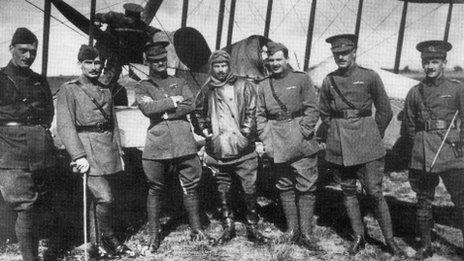Scotland commemorates World War One centenary
- Published
Commemorative events are being staged across Scotland to mark 100 years since the start of World War One
Commemorative events have been held across Scotland to mark the centenary of the outbreak of World War One.
A special service at Glasgow Cathedral was attended by Prince Charles, UK Prime Minister David Cameron, First Minister Alex Salmond and Commonwealth heads of government, as well as UK and Irish politicians.
It focused on the contribution of Commonwealth nations to the war effort.
A wreath-laying ceremony later took place at the Cenotaph in Glasgow.
The Queen later attended a special service at Crathie Church near Balmoral.
The services were among many events being staged across Scotland to mark 100 years since the opening of hostilities.
Millions of lives, both military and civilian, were lost in the war, which lasted from 1914 to 1918.
Speaking ahead of the Glasgow Cathedral service, Mr Salmond said: "No home, no school, no community in Scotland was left untouched by the devastating impact of the Great War, which remains one of the most brutal conflicts the world has ever seen.
"Scotland's losses were, per capita, among the highest of any combatant nation, and the war's effects on our nation were profound and long-lasting.
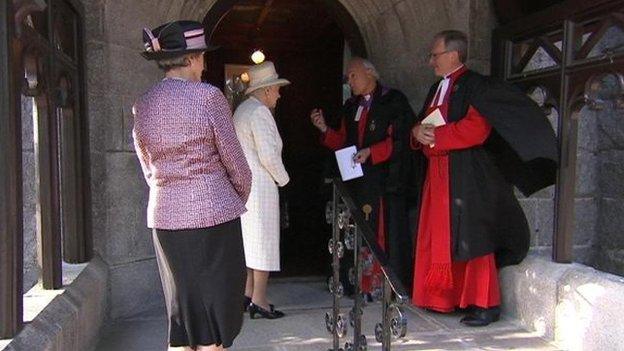
The Queen attended a special service at Crathie Church, near Balmoral
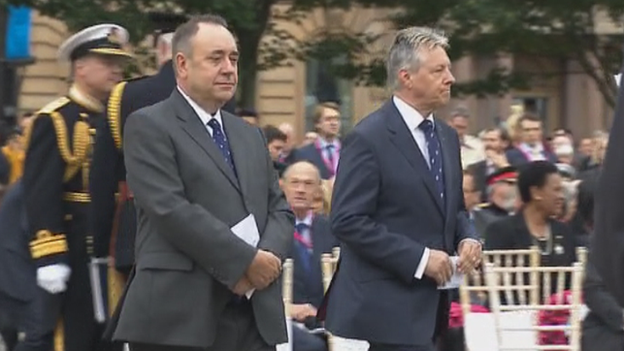
First Minister Alex Salmond with Northern Ireland's First Minister Peter Robinson at the Cenotaph ceremony where Prince Charles laid a wreath
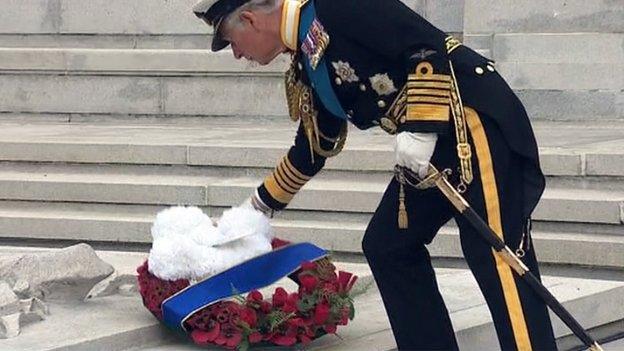
"Between 1914 and 1918, the First World War claimed the lives of around 145,000 Scots, leaving many more thousands injured or disabled and forcing friends and loved ones across the country to come to terms with the terrible consequences.
"As the curtain falls on 2014 Commonwealth Games, we acknowledge the countries of the Commonwealth we fought alongside during the Great War and it is fitting that this service in Glasgow Cathedral should focus on the contribution of these nations."
Speaking outside Glasgow Cathedral, Prime Minister David Cameron said it was important to find new ways of bringing the experiences of those involved in the conflict to life.
'Extraordinary day'
He told BBC Breakfast: "It was an extraordinary day in Britain's history.
"When you think that almost every family, almost every community was affected - almost a million British people were lost in this war - it's right that almost a hundred years on we commemorate it, we think about it and we mark it properly."
Mr Cameron described going to war as one of the "most difficult decisions that any prime minister has to take".
"Sending men and women into harm's way is a decision that you think about more than any you make as prime minister," he added.
The Moderator of the General Assembly of the Church of Scotland urged world leaders to find new ways to broker peace.
On the centenary of World War One, BBC Scotland reports from a cemetery in Mons where Scottish and German soldiers are remembered
The Right Reverend John Chalmers said: "I hope we can be quite intentional about learning lessons that will restrain us from heading towards conflict every time there is a difference, so that lives are not squandered."
Veteran broadcaster Sir Trevor McDonald introduced the readings at the service and paid tribute to those from around the Commonwealth who fought in the conflict.
He said: "During the years to come we shall rightly hear more of the courage and suffering of our forces in the conflict.
"But especially as this city has known the privilege of welcoming our Commonwealth brothers and sisters to the Games just past, it is right to pause now to remember their contribution."
Commemorative events were held in cities, towns and villages across Scotland.
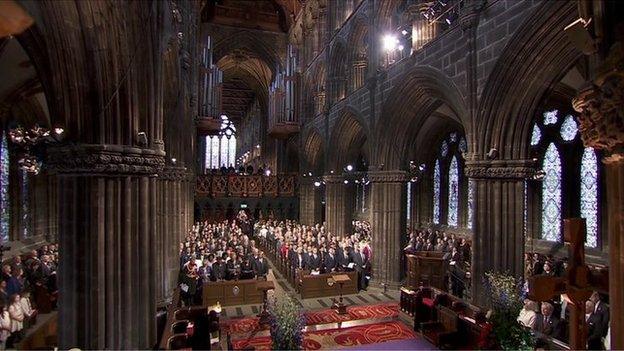
Heads of government from around the Commonwealth attended the cathedral service
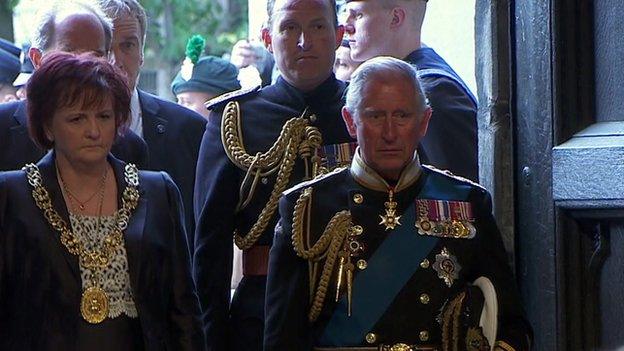
Prince Charles arrives at the service at Glasgow Cathedral
They included a community event at the War Memorial in Glasgow's Western Necropolis, where more than 600 WW1 graves are spread across the cemetery.
Among those attending were local clergy and members of the city's reserve and cadet associations.
Many communities are also supporting the Lights Out campaign, which is inviting people across the UK to switch off their lights between 22:00 and 23:00 and light a single candle, or leave on a single light, in a shared moment of national reflection.
A late-night vigil is being held at St Magnus Cathedral in Kirkwall. At 23:00 the last of 52 candles will be extinguished, leaving the cathedral in virtual darkness before the Last Post is sounded.
Glasgow City Chambers, which is the headquarters of Glasgow City Council, will turn off its lights and leave a candle in a window overlooking George Square.
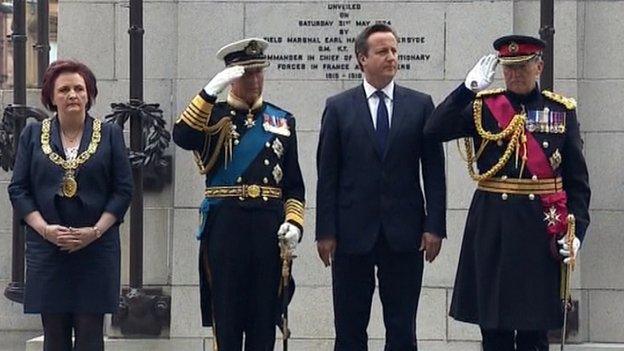
David Cameron described going to war as one of the most difficult decisions a prime minister has to take
A service was held at the Old High Church in Inverness, where a memorial candle was lit in memory of all those who lost their lives in the war.
The candle was then taken in procession to St Andrew's Cathedral, before a Highland-wide service of commemoration.
It will be placed at the cathedral's WW1 memorial where it will remain, lit, for the next four years.
The Provost of Inverness, Alex Graham, said: "Hundreds of invitations have been sent out but I would like to stress that these services are open to all to attend, from all faiths or none and from all parts of the Highlands.
"It is important that we never forget the sacrifices that were made by all those who served."
In Dumfries and Galloway, candlelit vigils and memorial services were being held in towns and villages across the region, while memorial services were planned for churches in the Scottish Borders.
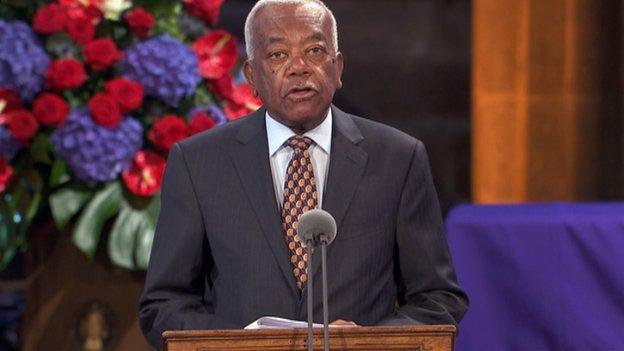
Sir Trevor McDonald and journalist Kate Adie spoke at the cathedral service
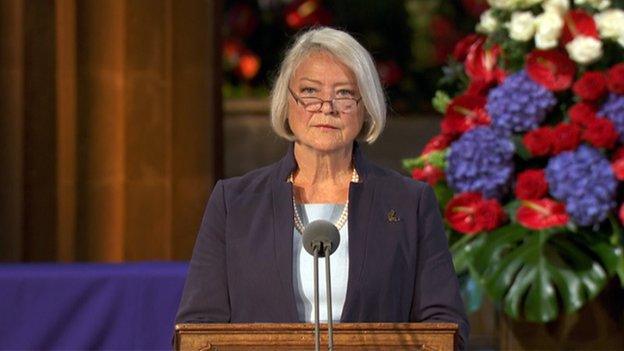
A "flotilla" of tea lights will be launched at 23:00 from a pontoon at Lambhill Stables in Glasgow to mark precisely a century since Britain declared war on Germany and formally entered WW1.
It will follow a community event at the Western Necropolis.
Glasgow North MP Ann McKechin, who along with Maryhill and Springburn MSP Patricia Ferguson helped to organise the community event, said: "The First World War changed Britain forever.
"It touched every family, affected every community and fundamentally altered our country's place in the world.
"This year marks the centenary of the start of the WW1 and provides us with an important opportunity to pay tribute to the service and sacrifice of those who laid down their lives and to mark the impact of war on our lives both past and present."
Time capsule
Meanwhile, a WW1 time capsule has been opened in Dundee, as part of the city's WW1 commemorations.
The box, which was held in the care of city postal workers for 93 years, contained artefacts including newspaper clippings, a post office magazine and photographs of dignitaries and visits by Princess Mary and Winston Churchill.
Edinburgh's commemorations included the opening of a new exhibition called Remembering the Great War at the Scottish National Portrait Gallery. It features depictions of senior statesmen, military figures, writers, poets, painters and musicians, and photographs of servicemen and women.
Over the weekend, a number of events were staged in Scotland in the run-up to the 100th anniversary.
In Cumbernauld, a parade was held before the official opening of a community memorial peace garden.
Montrose Air Station Heritage Centre also ran a series of events, including flying displays, a vintage aircraft rally and a play, to mark the town's part in the conflict.
Montrose was home to Britain's first operational military airbase set up by the Royal Flying Corps in 1913.
A pilot who had been based at the station was the first to land in France in August 1914.
- Published4 August 2014

- Published2 August 2014
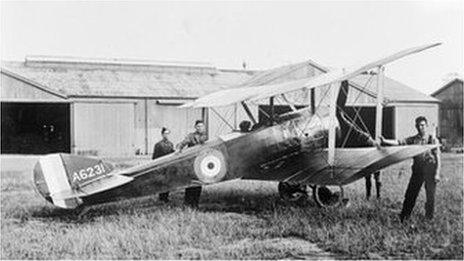
- Published4 July 2014
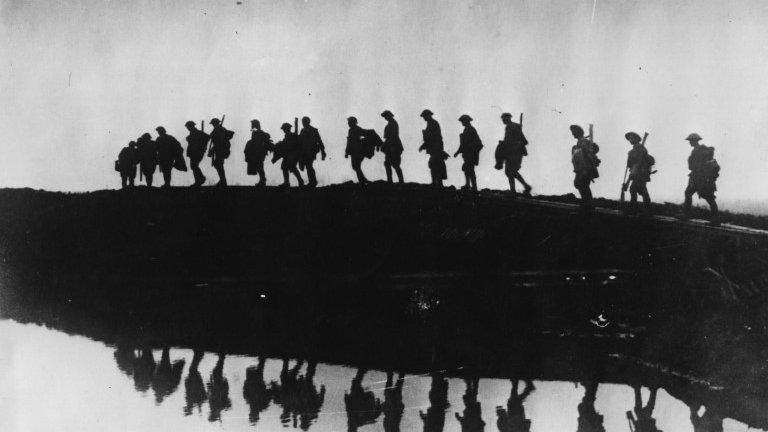
- Published3 July 2014
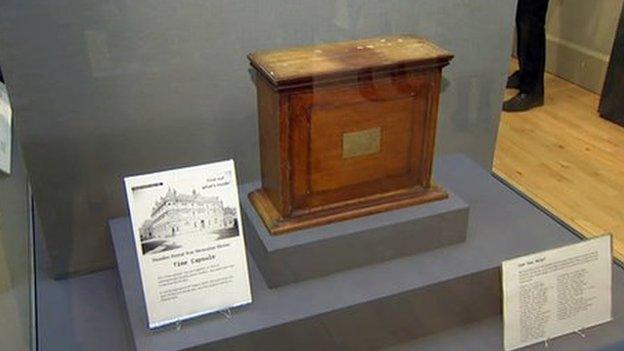
- Published23 February 2013
